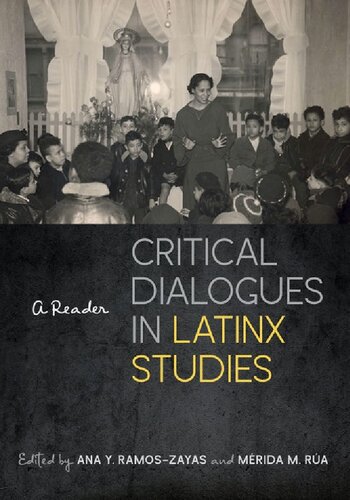

Most ebook files are in PDF format, so you can easily read them using various software such as Foxit Reader or directly on the Google Chrome browser.
Some ebook files are released by publishers in other formats such as .awz, .mobi, .epub, .fb2, etc. You may need to install specific software to read these formats on mobile/PC, such as Calibre.
Please read the tutorial at this link: https://ebookbell.com/faq
We offer FREE conversion to the popular formats you request; however, this may take some time. Therefore, right after payment, please email us, and we will try to provide the service as quickly as possible.
For some exceptional file formats or broken links (if any), please refrain from opening any disputes. Instead, email us first, and we will try to assist within a maximum of 6 hours.
EbookBell Team

4.4
32 reviewsIntroduces new approaches, theoretical trends, and understudied topics in Latinx Studies
This groundbreaking work offers a multidisciplinary, social-science oriented perspective on Latinx studies, including the social histories and contemporary lives of a diverse range of Latina and Latino populations. Editors Ana Y. Ramos-Zayas and Mérida M. Rúa have crafted an anthology that is unique in both form and content. The book combines previously published canonical pieces with original, cutting-edge works created for this volume. The sections of the text are arranged thematically as critical dialogues, each with a brief preface that provides context and a conceptual direction for the scholarly conversation that ensues.
The editors frame the volume around the “humanistic social sciences,” using the term to highlight the historical and social contexts under which expressive cultural forms and archival records are created.
Critical Dialogues in Latinx Studies masterfully sheds light on the diversity and complexity of the everyday lives of Latinx populations, the political economic structures that shape enduring racialization and cultural stereotyping, and the continuing efforts to carve out new lives as diasporic, transnational, global, and colonial subjects.